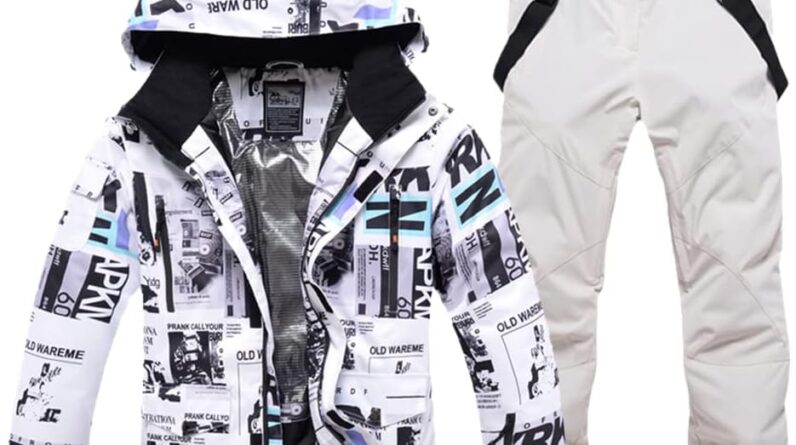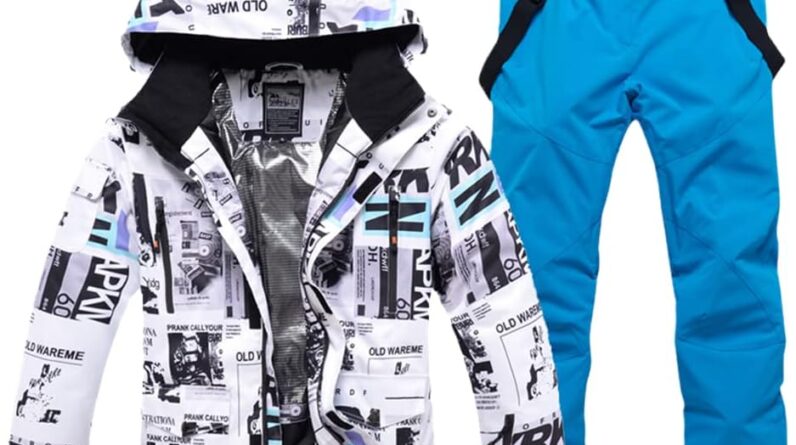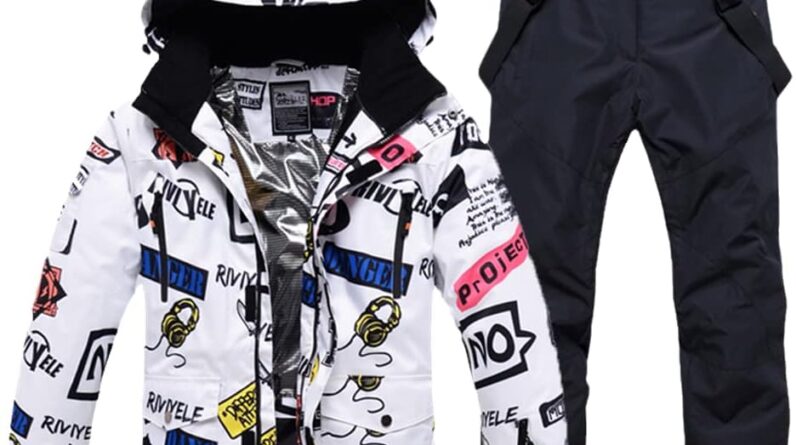
Are you an avid wakeboarder looking for the perfect vest to enhance your experience on the water? Look no further! In this comprehensive guide, we will walk you through the process of selecting the ideal wakeboard vest for your needs. From determining the right fit and size, to understanding the importance of buoyancy, we’ve got you covered. Get ready to make a splash and ride in style with the perfect wakeboard vest that will not only keep you safe, but also maximize your performance on the waves.
Factors to Consider
When it comes to selecting the perfect wakeboard vest, there are several factors that you need to consider. It’s important to choose a vest that not only fits you properly, but also provides the necessary buoyancy, suits your style, accommodates your weight range, and offers a great fit and comfort. Additionally, you may want to consider any additional features that could enhance your wakeboarding experience. In this comprehensive guide, we will delve into each of these factors in detail to help you make an informed decision.
Size
Choosing the right size for your wakeboard vest is crucial to ensure optimum safety and comfort on the water. There are a few steps you can follow to determine your correct size.
Measuring Chest Size
Firstly, you will need to measure your chest size. Wrap a measuring tape around the fullest part of your chest, just under your armpits. Make sure the measuring tape is snug but not too tight. Use this measurement as a guideline when consulting size charts or trying on different sizes.
Consulting Size Charts
Most wakeboard vest manufacturers provide size charts that correlate chest measurements with specific sizes. These size charts can be a helpful tool in guiding you towards the right vest size. Take note that different brands may have slight variations in sizing, so it is advisable to consult the specific size chart for the brand you are interested in.
Trying on Different Sizes
While size charts can be a helpful starting point, it’s always recommended to try on different sizes before making a final decision. Each individual is unique, and what may work for one person may not work for another. By trying on different sizes, you can get a better understanding of how a vest fits your body shape and determine which size feels the most comfortable and secure.

This image is property of www.jobesports.com.
Buoyancy
Buoyancy is a key factor in ensuring your safety while wakeboarding. It determines how well the vest keeps you afloat in the water. When choosing a wakeboard vest, it’s important to understand the importance of buoyancy and select the right level for your needs.
Understanding the Importance of Buoyancy
Buoyancy refers to the upward force exerted by a fluid that opposes the weight of an immersed body. In the case of wakeboarding, a buoyant vest helps keep you afloat and supports your body in the water, reducing the risk of drowning if you were to fall off the wakeboard. It is crucial to choose a vest with adequate buoyancy to ensure your safety and peace of mind while enjoying this exhilarating water sport.
Choosing the Right Level of Buoyancy
The level of buoyancy you require in a wakeboard vest depends on various factors such as your body weight, swimming ability, and personal preference. Vests are typically categorized into different buoyancy ratings. It’s important to pay attention to these ratings when making your selection. The most common buoyancy ratings for wakeboard vests are Type III, Type II, and Type V, with Type III offering a moderate level of buoyancy suitable for most wakeboarders. However, if you need additional support due to your weight or other factors, a higher buoyancy rating may be more appropriate. It’s always advisable to consult with experts or experienced wakeboarders for guidance on choosing the right level of buoyancy for your specific needs.
Testing the Vest’s Buoyancy
Once you have chosen a wakeboard vest, it’s essential to test its buoyancy before heading out onto the water. Put on the vest and enter the water. Observe how the vest supports your body and keeps you afloat. Ensure that the vest allows you to maintain a comfortable and secure position in the water. If you feel that the vest does not provide adequate buoyancy or if it restricts your movement, it may be necessary to consider an alternative option.
Style
While safety and functionality should be your primary considerations when choosing a wakeboard vest, style is another factor that may influence your decision. Wakeboard vests come in various styles, each with its own unique features and design.
Zippered Vests
Zippered wakeboard vests are a popular choice among wakeboarders. These vests typically feature a front zipper closure, allowing for easy on and off. Zippered vests provide a secure fit and are adjustable to accommodate different body shapes and sizes. They are a great option for those seeking convenience and a customizable fit.
Pullover Vests
Pullover wakeboard vests, as the name suggests, are worn by pulling them over your head. These vests often incorporate stretchy neoprene materials, making them form-fitting and comfortable. Pullover vests are known for their streamlined design, providing maximum freedom of movement. They are a preferred choice for wakeboarders who prioritize flexibility and agility.
Impact Vests
For wakeboarders who engage in more extreme tricks and jumps, an impact vest may be the ideal choice. Impact vests are designed with additional padding and reinforced panels in strategic areas to provide enhanced protection and impact resistance. These vests are specifically engineered to absorb and distribute the force of any hard impacts, reducing the risk of injury. If you are an advanced wakeboarder or participate in high-intensity riding, an impact vest could be the right style for you.

This image is property of cdn.shopify.com.
Weight Range
Considering your weight range is essential when selecting a wakeboard vest. You want a vest that fits well and provides optimum buoyancy based on your body weight.
Determining the Appropriate Weight Range
Wakeboard vest manufacturers typically provide weight range guidelines for each size. It’s important to choose a size that corresponds to your current weight. These weight ranges are designed to ensure that the vest fits securely and offers proper buoyancy. Selecting a vest that is too large or too small for your weight can compromise safety and comfort.
Considering Future Weight Gain or Loss
If you anticipate significant weight changes in the future, it may be wise to consider this when choosing a wakeboard vest. If you are in the process of losing weight or plan to gain muscle mass, opt for a vest that allows for some adjustability. Many vests feature adjustable straps and buckles that enable you to customize the fit as your body changes. This flexibility can extend the life of your vest and ensure its continued effectiveness, even as your weight fluctuates.
Fit and Comfort
Fit and comfort are essential aspects to consider when selecting a wakeboard vest. To fully enjoy your wakeboarding experience, you want a vest that fits well, provides unrestricted movement, and feels comfortable against your skin.
Adjustability
One of the primary factors contributing to a proper fit and comfort is adjustability. Wakeboard vests often feature adjustable straps, buckles, or laces that allow you to customize the fit to your specific body shape. These adjustable elements ensure that the vest hugs your body securely without feeling too tight or restrictive. Look for vests that provide multiple adjustment points to achieve the perfect fit.
Range of Motion
Wakeboarding requires a wide range of motion, so it’s crucial to choose a vest that doesn’t hinder your movements. Opt for vests that allow for unrestricted arm and shoulder movement. Pullover vests, particularly those made of stretchy neoprene materials, are known for their excellent range of motion. When trying on vests, move your arms and shoulders to ensure that the vest does not restrict your ability to perform essential wakeboarding maneuvers.
Padding and Panels
The padding and panel construction of a wakeboard vest can significantly impact its comfort and functionality. Look for vests with strategically placed padding and panels that enhance comfort without sacrificing safety. Soft, ergonomically designed padding can make a big difference in reducing the impact of falls and collisions while providing a comfortable and supportive fit.
Neck and Arm Openings
Pay attention to the neck and arm openings of the wakeboard vest. These areas should have a snug yet comfortable fit to prevent water from entering the vest and to ensure that it stays securely in place. Avoid vest designs with openings that are too large or too tight, as they may compromise both safety and comfort.
Breathability
Wakeboarding can be a physically demanding activity, and it’s not uncommon to work up a sweat on the water. Choosing a wakeboard vest with breathability features can help keep you cool and comfortable. Look for vests that incorporate mesh panels, ventilation systems, or moisture-wicking materials to allow for proper airflow and efficient moisture management.

This image is property of arg-images.sunandski.com.
Additional Features
In addition to the core factors we have discussed, there are several other features that you may want to consider when selecting a wakeboard vest. These additional features can enhance your overall wakeboarding experience and provide added convenience and functionality.
D-Rings and Attachment Points
D-Rings and attachment points on a wakeboard vest offer convenient places to secure accessories such as tow ropes, whistles, or other small gear. These attachment points can help keep your essential equipment close at hand and easily accessible while on the water.
Pocket Design
Some wakeboard vests come with built-in pockets, allowing you to store small items such as keys, ID cards, or sunscreen. Pockets can be a handy feature if you prefer to have your essentials within reach while wakeboarding. Consider the size and accessibility of the pockets when evaluating vest options.
Reflective Elements
Reflective elements on a wakeboard vest can enhance your visibility on the water, especially during low light conditions. Vests with reflective strips or panels can make it easier for other boaters and riders to spot you, increasing safety and minimizing the risk of accidents.
Color and Visibility
Choosing a wakeboard vest in a bright or highly visible color can also improve your visibility on the water. Vibrant colors like orange, yellow, or neon green can make it easier for others to see you, even from a distance. Higher visibility can enhance safety and help others locate you quickly in case of an emergency.
Quality and Durability
When investing in a wakeboard vest, you want to ensure that it is made with high-quality materials and construction techniques. A well-constructed vest will not only be durable but will also provide reliable performance and safety when you need it most.
Material Construction
Look for wakeboard vests made from premium materials such as neoprene or nylon. Neoprene is a popular choice due to its excellent flexibility, insulation, and resistance to wear and tear. Nylon vests can also be durable and lightweight. Consider the material’s thickness and overall quality to gauge its durability.
Stitching and Seams
Inspect the stitching and seams of a wakeboard vest to assess its quality. Double-stitched seams are generally more durable and less prone to unraveling or tearing under stress. Reinforced stitching at high-stress areas can provide additional strength and longevity. Avoid vests with loose threads or poorly finished seams, as these can be signs of inferior craftsmanship.
Brand Reputation
Consider the reputation and track record of the wakeboard vest brand you are interested in. Reputable manufacturers usually have years of experience in designing and producing high-quality water sports gear. Reading product reviews and seeking recommendations from fellow wakeboarders or professionals can help you identify reliable brands that are known for their commitment to quality and safety.

This image is property of standuppaddleboardworld.com.
Price Range
Price is an important consideration when choosing a wakeboard vest, but it should not be the sole determining factor. While it’s tempting to opt for the cheapest option, compromising quality and safety is not worth the potential risks. Consider the following factors when evaluating the price range of wakeboard vests.
Define Your Budget
Before starting your search, determine a realistic budget range for your wakeboard vest. By setting a budget, you can narrow down your options and focus on vests that fall within your financial means. Remember that investing in a quality wakeboard vest can provide long-term value and safety, so it may be worthwhile to allocate a reasonable budget for this essential piece of equipment.
Considering Long-Term Investment
While it’s important to stay within your budget, keep in mind that a wakeboard vest is not just a one-time purchase. It’s an investment in your safety and enjoyment on the water. Consider the long-term benefits and durability of a vest when evaluating its price. Spending a little extra for a vest that will last longer and provide better performance can be a wise decision in the long run.
Conclusion
In conclusion, selecting the perfect wakeboard vest requires careful consideration of various factors. Size, buoyancy, style, weight range, fit and comfort, additional features, quality and durability, and price range all play significant roles in determining the right vest for your needs. By following the guidelines outlined in this comprehensive article and weighing these factors against your personal preferences and requirements, you can make an informed decision and find a wakeboard vest that provides optimal safety, comfort, and performance during your wakeboarding adventures. Remember, a well-fitting and functional wakeboard vest is an essential piece of equipment that will enhance your experience and ensure your safety on the water. Happy wakeboarding!

This image is property of cdn.shopify.com.






